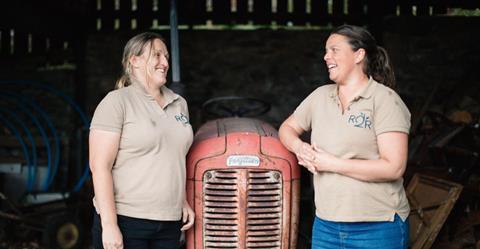The sustainable food exhibition is set to take place on 22-23 November in Somerset

A £5,000 prize fund is set to be launched at major food and farming event Land Alive later this month.
The prize fund is to offer two farmers or farm advisers in South West England £2,500 each towards a two-year regenerative farming programme called Roots to Regeneration (R2R).
The regenerative farming and sustainable food exhibition will be taking place on 22-23 November at the Bath & West Showground in Somerset.
Land Alive will be bringing together expert farmers and speakers to explain how the whole food supply chain can become more resilient, profitable and environmentally sustainable.
The event will include over 50 speakers, such as farmers, consultants, scientists, environmentalists, food processors and human health experts.
The R2R programme is due to begin in February 2025 and is run by regenerative agriculture leader Caroline Grindrod and farmer Clare Hill.
Those who want to apply for the prize can follow a simple application process, outlining their objective for joining the programme. But first, applicants must express their interest and book an online consultation here.
According to the Somerset-based organisation, regenerative farming could provide the answer to healthier soils, farm business resilience and food security.
Chief executive at the Royal Bath & West Society, Carol Paris, said: “The prize fund, sponsored by the Worshipful Company of Grocers, aims to stimulate innovation in farm business models in response to climate change, biodiversity loss, soil health, animal welfare, and – importantly – supporting farmer wellbeing.”
Co-founder of LandAlive, Tamara Giltsoff, added: “The programme comprises a mix of practical and technical learning, thinking about the bigger picture on the farm, the farm business model, and the impact of the farm within the local economy and community.”
And board chair at Sustainable Food Somerset, Stewart Crocker, said: “Regenerative farming is not just the answer for more sustainable agriculture – it needs to be seen in the broader context of local and global health.”



